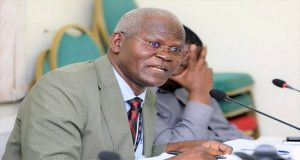
Dr. Innocent Nahabwe
Recently , I was drawn to an article in New Vision with a screaming headline that “betting: Cause for worry over road safety in Uganda”. I rushed to read through, intrigued how that is even possible. Having been in the betting business for close to 10 years now, I realize betting remains one of the most misunderstood and ‘ridiculed’ businesses in Uganda. It has been blamed for so many things not least breaking homes, diverting students’ school fees, and now, surprisingly, road accidents! Yet, while excessive alcohol consumption has a proven link to accidents, alcohol companies advertise freely on billboards, while betting houses face scorn. It’s time to set the record straight.
A shift in perception:
Sports Betting is new business in Uganda. Before the first sports betting company was registered around 2007, informal gambling with cards, Ludo, beans and other methods, was prevalent, largely unregulated, with those who participated in it assumed to be delinquents, and thus it was loathed by society.
Regularizing the industry has caused a massive change in perception, generated revenue for government and got the industry regulated so that it runs formally and fairly. Being a new industry, at first it was dominated by foreign companies, and that’s why locals call it “beating Muyindi” because it’s the people they’ve grown up seeing run these companies. By and by, Ugandans are quickly growing capacity to play in this market. Bluecube trading as Kagwirawo is one of the atleast 30 licenced betting companies in Uganda.
Benefits of a regulated gaming industry
- Employment: Gaming is the most widespread business across the country. The industry has over 3000 branches each needing a security officer, attendants, cashiers etc. At head office, you have auditors, managers, IT professionals, risk experts, etc. Together, the industry employs over 150,000 people directly and thousands more, indirectly. These are mostly youths especially females, who ordinarily would be jobless.
- Rental income: Ugandans continue to invest in buildings across the country. All the best shops across the country, especially in the countryside, are occupied by betting companies. This guarantees revenue to the landlords who are Ugandans who also pay taxes to government. The gaming companies help government collect taxes from these landlords by withholding from them. It also generates income for landlords across the country and helps fill the buildings that would otherwise be empty.
- Source of income: Most youths are struggling to have a way to earn a living. Betting returns at least 85% (RTP) of its revenue to the punters. For those that are good at the game, betting has now become a source of revenue and livelihoods. With a little money, people are able to continue living and believing because of betting. To them, its business just like rearing cows or selling chapati on the roadside and often more profitable than both. Indirectly, some have become experts at the betting game and act as betting advisors to punters. That yields them added income.
- Bringing informal money into the formal sector: Most punters get money from the informal sector where they wouldn’t pay taxes. Betting pulls this money into the formal sector where the money is kept in circulation and taxed hence supporting the government’s development agenda.
- Paying of Taxes: Gaming and sports betting is one of the fastest growing sectors in tax collections. By collecting WHT, GPBT, Corporate income tax, PAYE, VAT and other license fees, government is able to generate revenue. Last year, URA was able to collect over 150 billion UGX from the sector alone. At the most recent URA tax payer awards, one of the betting companies ChopGaming Ltd trading as Betpawa emerged in second place, only next to CocaCola in being a leading tax payer for the last quarter. This is evidence of the contribution the industry has to the country. In addition, the gaming industry contributes via license fees and other fees that the Gaming board levies. It also aids the other tax heads like import tax for gaming equipment
- Support to the media industry: According to IPSOS NAMS 2023, betting and gaming are the number 3 contributor to the media industry after Beverage companies and telecoms. This supports a struggling industry and guarantees more taxes from that industry too while supporting jobs of journalists, producers, graphic designers etc. We also support another printing industry along Nkrumah and Nasser roads, where “Betting Odd” schedules are printed.
- CSR support: The gaming industry has consistently supported many initiatives for the good of the people. Among these are blood donation drives, support to community sports teams, support to the National sports teams, support to the local sports leagues and others. All this amounts to more than 5bn UGX in value per annum.
Its therefore, unfair that we continue to ridicule an industry that supports this economy in a big way. Yes, it needs and must be heavily regulated. As players in the industry, we are working the National Lotteries and Gaming Regulatory board and other stakeholders to promote responsible gaming. A regulated gaming industry is good for the country as it allows gaming in a controlled environment. It needs to be supported.
The writer is a betting company co-owner and a member of the Licenced betting companies association.








